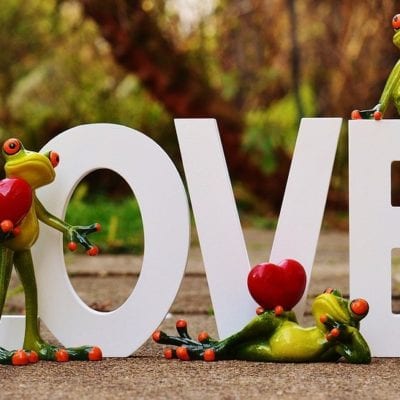So Accept it… it’s Just Human Nature
“I don’t like to be judgmental, but…”
How many sentences have you started like that? How many times have you berated yourself or someone else for being judgmental? What you may not realise though, or don’t wish to admit to yourself, is that you are judging and being judged all the time. Right now, someone is looking at you, listening to you or hearing something about you and making assumptions about who you are as a person.
The recent ‘we must not be judgmental’ phenomenon is relatively new and sending us all into a bit of a quandary… how can we go through life without making assumptions about others?
As human beings we all veer between being subconsciously conscious of how we appear to others while trying desperately to not let on that how others look and act affects the way we view them. As if making a quick decision about someone upon first impressions is a crime.
Well you know what? It’s okay.
It’s okay to forge your opinion of someone based on how others present themselves to you and it’s okay to care about how you appear to others. Because whether we like it or not, we are all a brand of our own making and how people react towards us is completely determined upon how we allow them to see us.

Let me back up a bit here…
As human beings we can’t help but categorise everyone we encounter in our lives, it is pure instinct to slot others into our own existence. Are they older or younger than us? Richer or poorer? Prettier or uglier? How do we fare in the line up? What is the hierarchy?
In a world where we are constantly bombarded by advertising messages, social media, information and so many virtual and real people, we need to decide who makes the cut and who doesn’t. Our brain can’t physiologically contain everything that is presented to us and give it all the same value. Including people.
Children do this every day, they are more than happy to make a judgment on everything they see based on gut instinct, visual appearance and past experiences. “I won’t eat that”. “I won’t wear that”. “She’s not my friend”. We berate them for it but in fact they are simply categorising things and people into their little world and making sense of it all.
Except as adults that’s not the polite thing to do, we know we have to give everyone a chance and that we mustn’t judge a book by its cover. Yet sometimes you have five minutes in a bookshop and ALL you have is the cover, so judge you must. Decide, you must. Quickly, with no further evidence but your opinions based on instinct, past experiences and your personal views about what is right or wrong for you. All you have before you is a book cover and that’s what you’ll base your entire opinion on – first impressions, appearance, branding. Just like we do with people.
Rightly or wrongly, as adults we subconsciously make decisions about every single person we come across. Take for instance your first day at a new job. You haven’t had the opportunity to talk to everyone in your office yet, or ask others about your team mates, so you have to make assumptions based on what you see and how they match up to your own pre-determined ideal of what you require in others.

Who will be your friend in the staff canteen? Who are the bosses and the ones to avoid? Who is more important than you? By the end of the day you will have already judged every single person in the office and made assumptions about them based on their age, clothes, mannerism, body language, accent, tone of voice and stature.
If you are familiar with the teachings of the philosopher Jung, you will have (on a very basic level) categorised people into archetypes. He believed that universally known mythical characters represented in fables and stories across all of time reside within the collective unconscious of every human being. So as we walk into a room full of strangers we can’t help but wonder who is the hero, the mother, the jester and the victim? Who is powerful, who is nurturing, who is entertaining and who is a pushover? In short – who is worthy of our time and who isn’t? Who will benefit us and enrich our lives… and who won’t?
The ethics behind how or why we judge others can be disputed until the cows come home, but the fact of the matter is that we all do it – and not just with people but with everything else we come across in life; from the aforementioned book covers and food packaging, to business cards and shop windows. Everything in life, even ourselves, is a brand. From what we choose to wear to how we act, is an advertisement of who we are, what we believe in and how we wish to be perceived.
Let’s put this into context. I am me (I can be no one else)… but like every person in the universe there are different aspects of me. I, just like you, am a prism. A diamond. A solid object with many sides that reflect back the light that is shone upon me. Depending on who you are, where I am or how I feel, I will project a different version of me. I won’t dress or act the same at work as I will having drinks with friends at a rock concert or meeting my in-laws for the first time. And there is nothing wrong or deceiving about that, it’s just how we find our place in the world.

Do I want to be perceived as fun and crazy and carefree? Or responsible, mature and serious? We all, whether consciously or not, ask ourselves that question every day. When we are buying clothes or choosing a hairstyle. When we are introducing ourselves to strangers or writing our CVs. Who are we? How do we want others to see us? How do we wish to be judged?
But what happens when our first impressions of someone are wrong?
Well, we quite simply re-assess… and it’s not a comfortable feeling.
Cognitive dissonance, that sense of unease that we experience when we are confronted with the juxtaposition of firmly held beliefs contrasting with new opinions of someone/something brought along by new evidence, is a sensation we all seek to avoid. From a marketing point of view, we may experience it with a product. We believe the TV ad but the washing powder lets us down. We love the restaurant then find out the chicken is really rat meat.
But we do it with people too. We think that mum outside the school gate is stuck up and snooty, but she’s actually shy and nervous. We avoid her, then circumstances force us together and we discover she’s actually really nice and we got her all wrong. Why does that make us feel uncomfortable and guilty? Because we start to question our own instincts, and we start to wonder whether the way we wish others to perceive us isn’t working. What if others are judging US?
So what can be done about our sense of unease? The answer is twofold….
- If what others think of you is really a concern then look into the process of Neuro Linguistic Programming. NLP is an approach to communication, personal development and psychotherapy. Through a number of techniques you can become personally aware of your actions, body language, mannerisms and even tone of voice and learn how it can have an effect on others around you. By appearing more confident to others, you WILL be more confident. By aiming to achieve, you WILL achieve. By wanting to appear calmer and more in control, you WILL be calmer. Take a look here for more information.
- Alternatively, stop giving a fuck about what others think of you and accept the fact that you aren’t everyone’s cup of tea. It really doesn’t matter. As long as you are who you want to be and it works for the life you have set out to live, what others think shouldn’t have any bearing on your reality. Siphon out the ones that don’t make the cut, you can’t please everyone all of the time… just please yourself.
Do you judge? Yes, you probably do.
Are people judging you? Yes, they probably are.
Does it matter? Nope, not one bit. Carry on just as you were… you’re doing great.
(Note from The Editor: Many thanks to Natali for her contribution to The Glass House. Natali is a freelance brand consultant and writer and author. Her debut novel, The Path Keeper is available from 23rd Feb 2017. To read more from Natali, you can follow her on Facebook, Twitter or check out her website njsimmonds.com. You can buy (or pre-order) Natali’s novel here.)

![]()








